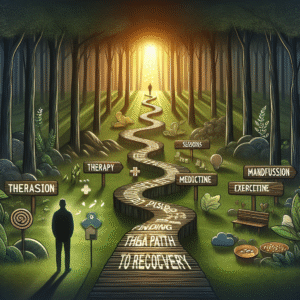Dementia is a complex and challenging condition that affects millions of individuals and their families around the globe. It not only impacts memory and cognitive functions but also alters relationships and daily living. As caregivers, understanding unique methods to support those with dementia can significantly enhance their quality of life. In this article, we will explore creative and compassionate techniques tailored for individuals living with dementia.
Understanding Dementia: A Brief Overview
Dementia is an umbrella term for various disorders characterized by cognitive decline, including Alzheimer’s disease, vascular dementia, and Lewy body dementia. Symptoms vary, but memory loss, difficulty with communication, and changes in mood or behavior are common. Recognizing these signs is the first step toward providing effective support.
Creating a Safe and Familiar Environment
Importance of a Safe Space
An environment that feels safe and familiar can help reduce anxiety and confusion in individuals with dementia. Consider the following:
- Declutter Living Spaces: Remove unnecessary items that could cause disorientation or accidents.
- Use Memory Aids: Strategically placed photos, labeled drawers, and familiar objects can trigger positive memories and cues.
- Maintain Consistency: Keeping routines consistent helps individuals with dementia feel more secure and comfortable.
Engaging Activities to Stimulate the Mind
Cognitive Exercises
Engaging the mind is essential in maintaining cognitive function. Here are some unique activities to consider:
- Art Therapy: Encourage creative expression through painting, drawing, or crafting. This not only engages the brain but also allows for emotional expression.
- Music Therapy: Listening to familiar music or participating in sing-alongs can evoke memories and enhance mood. Create personalized playlists for better connection.
- Puzzle Activities: Simple jigsaw puzzles or word games help stimulate cognitive function while offering a sense of achievement.
Fostering Social Connections
The Power of Community
Social interaction is vital for emotional well-being. Promote connections through these approaches:
- Visit Community Centers: Many local centers offer programs for seniors with dementia. Engaging in activities with others can reduce feelings of isolation.
- Family Involvement: Regular visits or video calls from family members can boost spirits and provide comfort.
- Support Groups: Encourage participation in support groups, either for the individual with dementia or for family members. Sharing experiences can foster understanding and camaraderie.
Encouraging Physical Activity
Staying Active for Better Health
Physical activity can significantly affect mood and overall health. Here are some unique ways to encourage movement:
- Nature Walks: Enjoying the outdoors can provide sensory stimulation. Consider gentle walks in parks or gardens to promote engagement with nature.
- Chair Exercises: Simple exercises that can be done seated help maintain flexibility and strength without the risk of falls.
- Dance Therapy: Invite individuals to dance, either in a group or privately. It’s a joyful way to stay active while tapping into rhythm and memory.
Nutrition and Hydration: Key Components of Care
Importance of a Balanced Diet
A well-balanced diet rich in nutrients is crucial for brain health. Consider these suggestions:
- Incorporate Brain-Healthy Foods: Focus on foods rich in omega-3 fatty acids, antioxidants, and vitamins, including fish, leafy greens, and berries.
- Encourage Hydration: Dehydration can exacerbate cognitive decline. Make drinking water fun by using colorful cups or flavored water.
- Cook Together: Involving individuals in meal preparation can stimulate their senses and encourage them to eat a healthy diet.
Utilizing Technology for Support
Embracing Modern Solutions
Technology can play a valuable role in supporting individuals with dementia. Explore these innovative methods:
- Reminder Apps: Technologies like smartphones or tablets can help remind individuals about daily tasks or appointments.
- Virtual Reality Experiences: VR can transport users to familiar locations or experiences, offering both entertainment and mental stimulation.
- Telehealth Services: Regular check-ins with medical professionals via telehealth can aid in monitoring health and medication management.
Conclusion: A Heartfelt Approach
Caring for someone with dementia requires compassion, patience, and creativity. By implementing unique methods such as fostering safe environments, promoting social connections, engaging in activities, encouraging physical exercise, focusing on nutrition, and leveraging technology, caregivers can significantly improve the quality of life for individuals suffering from dementia. Remember, every person is unique, and tailoring these approaches to individual preferences will help foster a sense of dignity and joy. Together, we can make a profound difference in the lives of those living with dementia, one step at a time.
Remember: Every Moment Counts
Support is not a one-size-fits-all journey—it’s a collaborative and evolving process that enriches the lives of both the caregiver and the individual. Embrace these unique methods with love, patience, and understanding.






